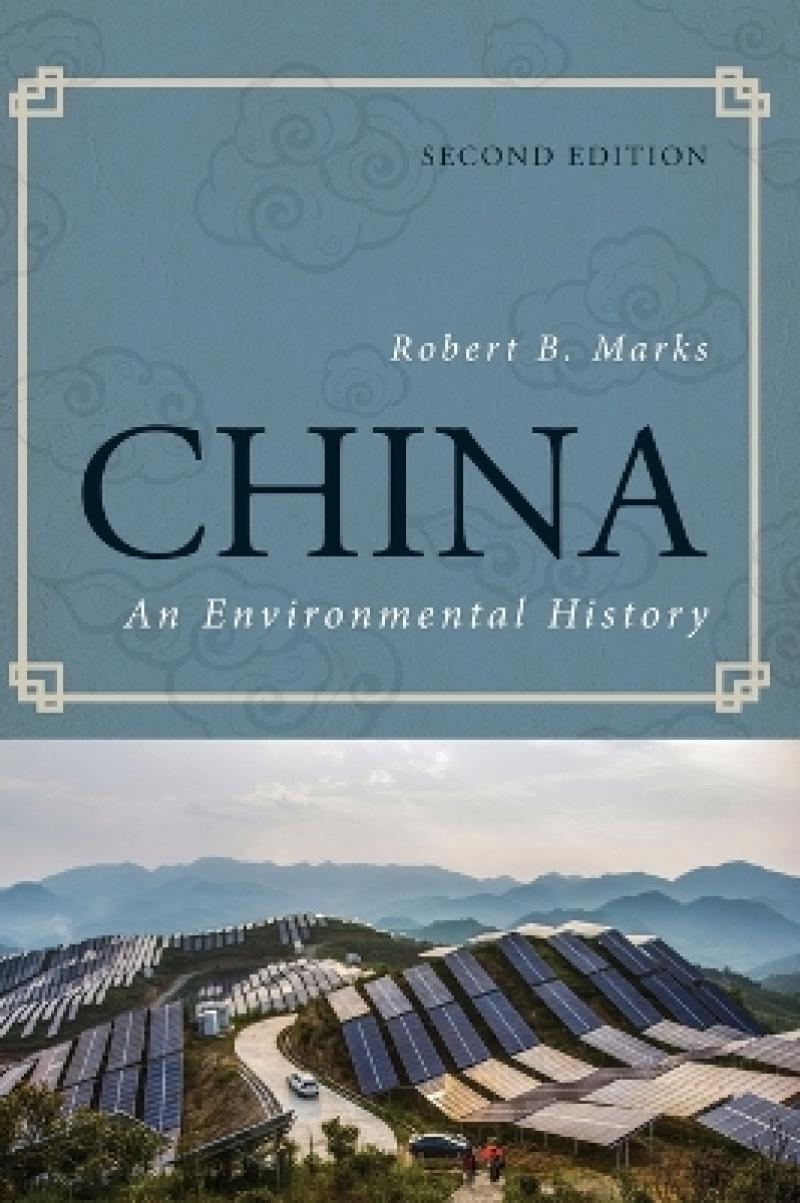This deeply informed and clearly written text provides a comprehensive and comprehensible history of China from prehistory to the present. Now updated to include recent political events and scientific research, the book focuses on the interaction of humans and their environment. Tracing changes in the physical and cultural world that is home to a fifth of humankind, Robert B. Marks illuminates the paradoxes inherent in China’s environmental narrative, demonstrating how historically sustainable practices can, in fact, be profoundly ecologically unsound. The author also reevaluates China’s traditional “heroic” storyline, highlighting the marginalization of nature and contacts with other peoples that followed the spread of Chinese civilization while examining the development of a distinctly Chinese way of relating to and altering the environment. Unmatched in his ability to synthesize a complex subject clearly and cogently, Marks has written an accessible yet nuanced history for any student interested in China, past or present, or indeed in the world’s environmental future.
Les mer
This deeply informed and clearly written text provides a comprehensive history of China from prehistory to the present. Now updated to include recent political events and scientific research, the book focuses on the interaction of humans and their environment, tracing changes in the physical and cultural world that is home to a fifth of humankind.
Les mer
List of Illustrations
Preface to the Second Edition
Acknowledgments
Chapter 1: Introduction: Problems and Perspectives
Chapter 2: China’s Natural Environment and Early Human Settlement to 1000 BCE
Chapter 3: States, Wars, and Farms: Environmental Change in Ancient and Early Imperial China, 1000 BCE–300 CE
Chapter 4: Deforesting the North and Colonizing the South in the Middle Imperial Period, 300–1300 CE
Chapter 5: Empire and Environment: China’s Borderlands, Islands, and Inner Peripheries in the Late Imperial Period, 1300–1800 CE
Chapter 6: Environmental Degradation in Modern China, 1800–1949
Chapter 7: “Controlling” Nature in the People’s Republic of China, 1949–Present
Chapter 8: Conclusion: China and Its Environment in World Historical Perspective
Select Bibliography
Index
Les mer
Based in part on the author's earlier, more technical book, Tigers, Rice, Silk, and Silt: Environment and Economy in Late Imperial South China (1997), this new volume presents for a more general audience the parallel story lines of episodic and long-term ecological damage and the equally long-term success of the Chinese agricultural system. Marks (Whittier College) clearly highlights the symbiotic relationship between family farming and the strategic interests of the bureaucratic state since the Qin and Han empires, and stresses the interactive role of 'Chinese' and 'non-Chinese' in 'China's' agricultural and ecological change. He places the People's Republic of China at the end of an environmental saga in four premodern stages: the growth of millet-based farming communities in the Neolithic period; the rise of the imperial state from 1000 BCE to 300 CE; the rise of high-yielding wet-rice agriculture from 300 to 1300 CE; and the increasingly unsustainable population growth of the late empire from 1300 to 1800. Marks concludes with the modern era, focusing on the PRC's huge organizational capacity to industrialize the Chinese economy. He very capably sifts through the immense secondary literature on Chinese social, political, economic, and environmental history to present a very useful synopsis of the state of the field. Summing Up: Recommended. Most levels/libraries.
Les mer
Broad coverage of China’s history from earliest times to the present
Fully updated to include the 2015 Paris Agreement on climate change, new research on global warming, and new scholarship on China’s environmental history
Produktdetaljer
ISBN
9781442277878
Publisert
2017-02-17
Utgave
2. utgave
Utgiver
Vendor
Rowman & Littlefield
Vekt
1002 gr
Høyde
263 mm
Bredde
190 mm
Dybde
30 mm
Aldersnivå
U, 05
Språk
Product language
Engelsk
Format
Product format
Innbundet
Antall sider
468
Forfatter
